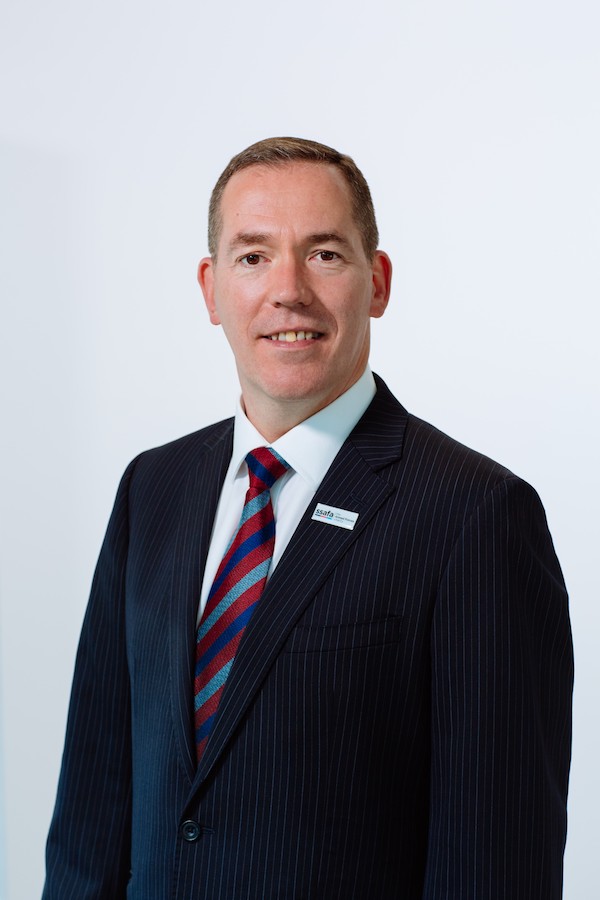NHS Orkney chief clarifies position between confidentiality and public health

NHS Orkney is willing to share the specific location of COVID-19 cases in the county — but only if there are genuine concerns over a major outbreak.
This the message from the health authority’s interim chief executive, after facing renewed calls for further details to be revealed about the rising number of cases Orkney has experienced in the past fortnight.
This week, in an interview with The Orcadian, Michael Dickson shone some light on the differences between the public health messaging that members of the public may have noticed between NHS Orkney and NHS Shetland in recent weeks — including the disclosure of specific hotspot locations for the virus in Shetland.
This comes amid underlying fears within our community that Orkney could soon face a similar plight to Shetland, which recently recorded its 200th case since the pandemic began — including more than 120 cases since Christmas Eve.
While a publicly accessible NHS Scotland database does currently give some indication on the rough area in which cases have been discovered during the past seven days, this is only if cases in a particular location total more than five.
For instance, during last week, the database suggested that as many as seven cases had been attributed to folk living in the West Mainland, but the location gets no more specific than that.
Meanwhile, headlines in Shetland have specifically highlighted an outbreak on the island of Yell, with the county’s public health team encouraging residents there to book a COVID-19 test, and urging the public to stay at home and avoid household mixing.
“We have had an outbreak in Shetland and that outbreak has been significant for our population, but in Orkney we continue to have clusters,” said Mr Dickson, who is also the chief executive of NHS Shetland.
“These tend to be household contacts. One person tests positive, and then so do their close household contacts.
“The concern would be if we started to see an expansion of that — cross-household spread or spread, where it can’t be traced back to any known positive case.”
The interim chief executive explained that the outbreaks in Shetland and the Western Isles recently have been connected to inter-household mixing, including social interactions at hospitality venues. He warned that, if the community became complacent here, we could run the risk of similar outbreaks in Orkney.
“The trigger point for the outbreak in Shetland was just two households mixing,” he explained.
With a number of small clusters of cases having sprung up in Orkney throughout the course of the pandemic, Mr Dickson has previously said that he and his colleagues would not share specific information on their location for reasons of confidentiality — generally because the numbers are so small in each area.
Asked for further detail on what threshold would need to be met in order for NHS Orkney to disclose the location of cases, the interim chief executive said: “We have to careful, balancing the requirement from public health versus confidentiality.
“We will always try to get the right balance between what we need to share, and our legal obligations in terms of confidentiality.
“It would be so much easier if we could say ‘this person has tested positive and this is where they live’ — but we have a legal obligation, and I don’t support breaching legal obligations.”
Mr Dickson explained that there is no clear-cut rule on when a health authority should disclose the location of COVID-19 cases in the interests of public health, and that it would vary depending on the size of the population in that area, and the risk to the wider public there.
“If a cluster were to become a significant event, then we would inform the public — and we did that in Shetland.
“If it were a number of cases in Westray, then we would also inform the people there.
“Even if there was a smaller community in the outer isles — something that would be considered a cluster on the Mainland could be considered an outbreak on Papa Westray, for example.
“So what would we do to balance our legal obligations with public health requirements?
“We would probably say ‘we are dealing with a significant outbreak in Papa Westray.’
“We don’t disclose unless we feel that we are heading into risk of an outbreak, and we are needing to urge the public to modify their behaviour.”
The interim chief executive said he understood the frustrations of some folk in the community, who are keen to know where in Orkney cases are, in order to avoid them.
“There will always be those people in the community who think we should share specific locations of cases, and I’m saying we can do that — but only if cases rise to a point where we feel that people need to directly modify their behaviour, because we might be concerned that they are not already doing so.
“That’s when we would put a public health message out and say something like ‘in Stromness, we are seeing a rise in cases and we are urging people to absolutely cease mixing entirely.”

